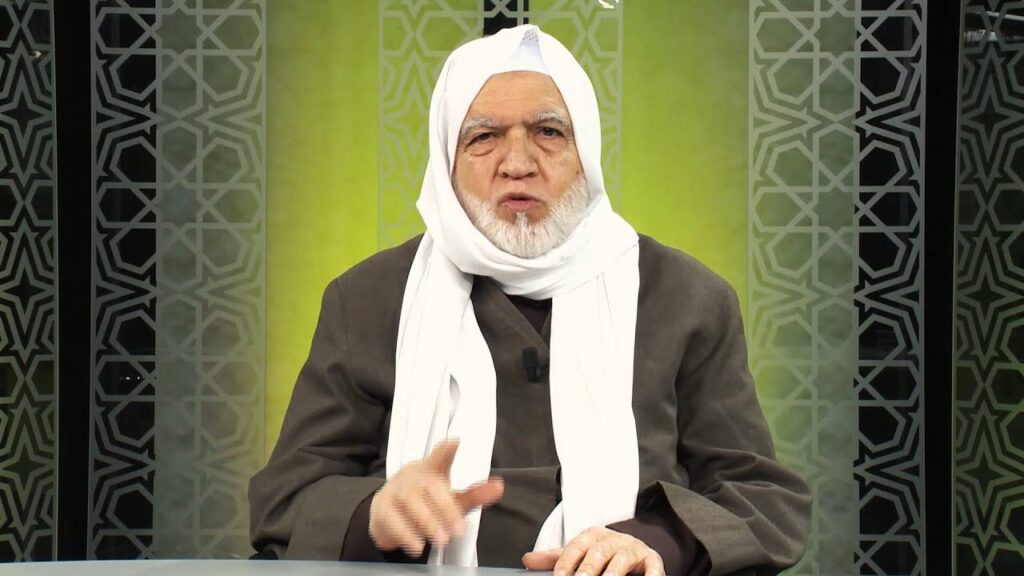
Who is Sheikh Osama al-Rifai, the new Grand Mufti of Syria appointed by the Opposition after the position was abolished by Assad.
The opposition Syrian Islamic Council announced the election of Sheikh Osama al-Rifai as the Grand Mufti of Syria Syrian and international circles welcomed this move as preserving the position of the fatwa that the Assad regime tried to abolish in the interest of its agendas.
In a statement, the council’s official spokesman said, “The Syrian Islamic Council… and the Syrian Ifta Council, the specialized body for fatwas, after discussions with several senior Syrian scholars, and to preserve this honorable position, decided to keep this position and elect Sheikh Osama al-Rifai Grand Mufti of the Syrian Arab Republic.”
The appointment of Sheikh Rifai as Mufti of Syria by the Opposition was widely welcomed by some local Syrian circles and Arab Islamic personalities and entities. At the same time, he was criticized for considering the Sheikh known for his controversial positions on women and civil society.
Background
Sheikh Osama was born in Damascus in 1944. He is the eldest son of the late Damascene scholar, Sheikh Abd al-Karim al-Rifai. He studied the Arabic language and its sciences at the University of Damascus. He graduated in 1971, after which he became Imam of the Abd al-Karim al-Rifai mosque in Damascus.
Rifai left the country for Saudi Arabia in 1981 to escape the campaign against Islamic groups. he was accused of belonging to the “Muslim Brotherhood” movement.
In 2005, following the assassination of Rafik al-Hariri, the regime was forced into a period of political openness, primarily by the international community. It allowed Rifai’s group to establish the “Maintain the Grace” project, which was helping the poor of Damascus. During a short time, the project was able to influence and activate in wider circles. However, this period of calm did not last long. In 2008, Assad was welcomed by President Sarkozy in Paris. He returned feeling international relaxation and curbed the role of this group and some religious institutes.
The revolution
Sheikh Rafai stood by the revolution from the beginning. He played a prominent role in confronting the Assad regime and its militias and embracing the demonstrators in the Abdul Karim al-Rifai Mosque. He was preaching in the Kafr Sousa neighborhood in the center of the capital, Damascus.
At dawn on August 27th, 2011, which coincided with the 27th night of Ramadan, many security personnel and the shabiha of the Syrian regime attacked the Sheikh Abdul Karim al-Rifai mosque during the Tahajjud prayer and beat the worshipers.
Sheikh Osama was severely beaten, after which he was transferred to al-Andalus Hospital in Damascus for treatment, and he showed a video clip posted on “YouTube” of his lying in the hospital among a crowd of lovers.
Later, Rifai moved to Turkey, where he revived the League of Scholars of the Levant (LSL) that brought together some Damascus and other scholars. LSL was formed for the first time in 1937 but remained secretive until the revolution.
And in April 2014, in Istanbul, he announced the establishment of the “Syrian Islamic Council” to form a Sunni reference group that would bring together Sharia bodies and Syrian Islamic organizations.
Sheikh Osama was chosen as head of the council, consisting of 128 religious scholars and preachers who support “the revolution and seek to unify the position issued by scholars on fatwas and issues of general Syrian concern and before countries, regional and international organizations and bodies.”
Anti-women and opposed to civil society
Recently, however, women and civil society activists criticized remarks he made in a sermon in Azaz north of Aleppo, which is under the control of Turkish forces.
Rifai said in his sermon that there are female recruits from the “United Nations” and others, which he described as centers of misinformation and blasphemy, who come to spread women’s liberation among Syrian women.
Rifai added that ideas related to “genderedness” are spread among women and women’s empowerment groups calling for their freedom. They convince women that they are enslaved by their husbands, fathers, or older brothers and encourage them to take their complete independence. Rifai denounced that endeavor of the ‘recruits of United Nations and the Western circles. He believed that this call corrupts ‘our women” but failed to show how.
In addition, Rifai warned against relief, humanitarian, and development organizations. he called on his audience (mainly men) to beware their children from the free courses provided by the NGOs, which “contain poison that kills our children’s religion, values, and morality.” Rifai added that these courses are among the most dangerous.
Reaction
Both the opposition Syrian National Coalition (SOC) and the Muslim brothers in Syria welcomed the election of Rifai as Grand Mufti. The SOC said in a statement that it “welcomes Sheikh Osama al-Rifai’s assumption of the post of Syria’s Grand Mufti in view of the scholarly, intellectual and social values he represents as well as his wisdom, moderation, and commitment to what is right.”
The Supreme Guide of the Muslim Brotherhood in Syria also congratulated Sheikh Osama Abdul Karim Al-Rifai for being assigned as Syria’s Grand Mufti.
